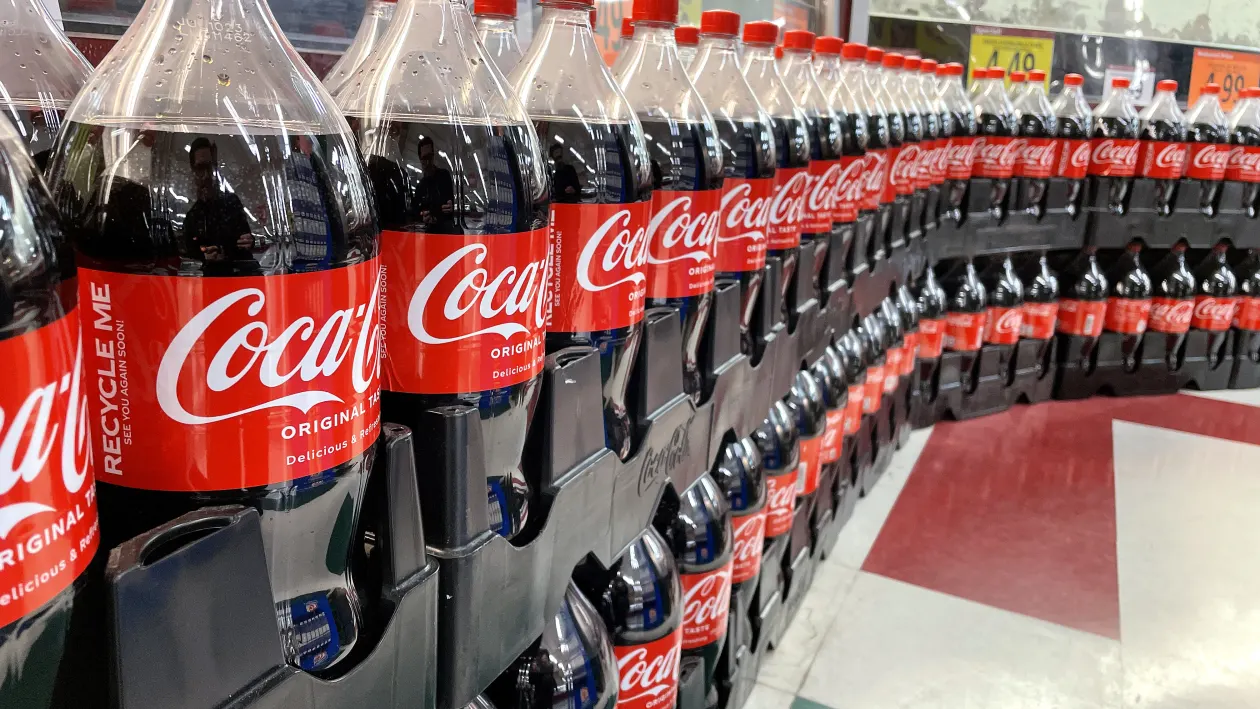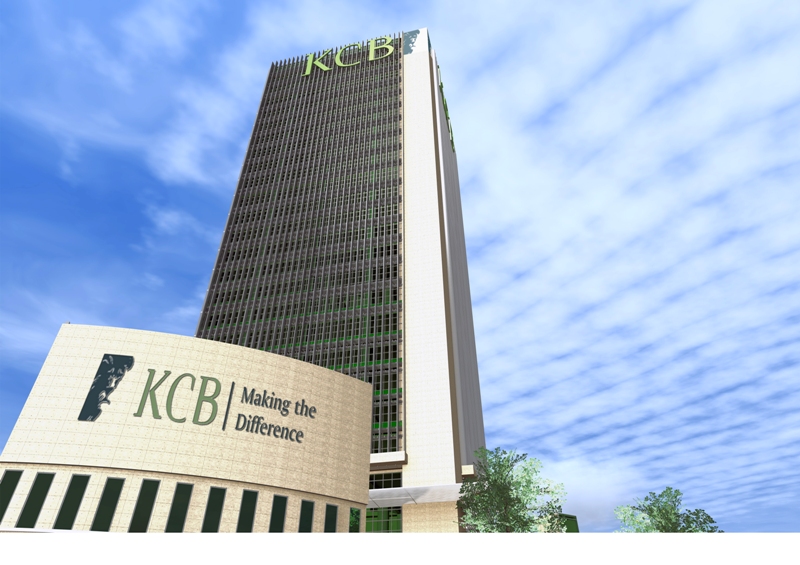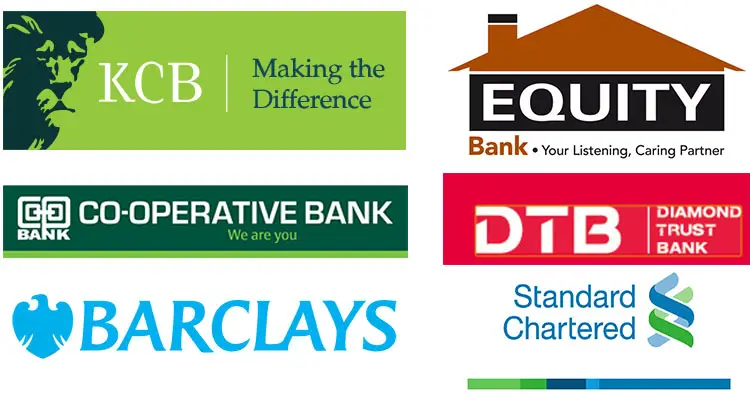Business & Money
Watchdog Probes Coca-Cola for Anti-Competitive Behavior in 19 African Countries
This investigation centers on the future of competition in Africa’s booming beverage market, valued at billions annually. With over 1.4 billion people and a young, urbanizing demographic, Africa is a crucial growth market for global firms like Coca-Cola. However, regulatory frameworks are tightening as governments and consumer protection agencies strive to establish a fair playing field for all businesses.

:Coca-Cola Faces Major Anti-Competitive Probe Across 19 African Countries: Regulatory Watchdogs Targeting Fair Competition, Beverage Market, Monopoly Concerns, and Business Practices
By Charles Wachira
The Coca-Cola Company, one of the world’s largest beverage manufacturers, is under investigation by a coalition of African competition watchdogs for allegedly engaging in anti-competitive practices across 19 African countries. This major probe comes amid growing concerns that the company has been using its dominant market position to stifle competition, limiting choices for consumers and creating barriers for smaller beverage firms trying to enter the market.
Why the Probe Was Initiated
The investigation was triggered in August 2024 following complaints from local competitors and regulatory authorities, alleging that Coca-Cola had been involved in activities that violate fair competition laws. The specific allegations include exclusive supply agreements with retailers, preferential pricing arrangements with distributors, and practices that prevent rival brands from gaining shelf space in key outlets.
The complaint gained traction when smaller beverage companies accused Coca-Cola of using its vast distribution network to monopolize the market, especially in countries where the regulatory framework is still developing. These smaller firms argue that Coca-Cola’s influence on the supply chain has marginalized their products, limiting consumer choice and hindering competition.
The probe is a joint effort initiated by the African Competition Network (ACN), an umbrella organization that brings together competition authorities from various African nations. The ACN was formed to ensure a unified approach to cross-border competition issues on the continent. According to sources, this investigation is one of the largest of its kind ever conducted in Africa.
Countries Involved
The 19 African nations involved in the investigation are spread across East, West, Central, and Southern Africa, indicating that Coca-Cola’s business practices have raised widespread concerns. These countries include:
- Kenya
- South Africa
- Nigeria
- Ghana
- Tanzania
- Uganda
- Ethiopia
- Rwanda
- Zambia
- Zimbabwe
- Botswana
- Namibia
- Mozambique
- Malawi
- Angola
- Ivory Coast
- Cameroon
- Senegal
- Democratic Republic of Congo (DRC)
The inclusion of some of Africa’s largest and most dynamic economies, such as South Africa, Kenya, Nigeria, and Ethiopia, underscores the significant stakes involved. Coca-Cola has a long history of dominance in these markets, often considered critical to its African operations due to their large populations and growing middle class.
What is at Stake
At the heart of this investigation is the future of competition in Africa’s rapidly growing beverage market, estimated to be worth billions of dollars annually. With more than 1.4 billion people across the continent and a young, urbanizing population, Africa is seen as a key growth market for global companies like Coca-Cola. However, the regulatory environment is also tightening as governments and consumer protection agencies work to create a level playing field for all businesses.
The stakes for Coca-Cola are high. If the company is found guilty of anti-competitive behavior, it could face significant fines, sanctions, and even restrictions on its operations in some of these countries. Additionally, Coca-Cola could be required to revise its distribution contracts and change its business model in key African markets, which may impact its profitability and market share.
There are also broader implications for the business community. This investigation signals to multinational corporations that African regulatory bodies are becoming more vigilant about enforcing competition laws, even for industry giants like Coca-Cola.
The Initiation of the Probe
The probe was officially launched by Kenya’s Competition Authority (CAK) in August 2024 after it raised concerns following complaints from local bottlers and distributors. CAK’s then acting Director-General, Adan Wario, emphasized the need for competition in the beverage sector, which he said is vital to ensuring consumer choice.
“Competition in the beverage market is essential to ensuring that consumers have access to a variety of choices at fair prices. We have observed practices that could potentially limit competition and harm both consumers and small businesses,” said Kariuki during a press briefing on August 18, 2024.
The concerns raised by Kenya’s competition body quickly gained attention from other regulatory agencies, leading to the formation of a broader coalition under the African Competition Network. The ACN’s chairperson, Thabo Maseko, who also heads South Africa’s Competition Commission, underscored the importance of this investigation:
“This investigation marks a milestone in African competition law enforcement. It highlights our collective commitment to creating an environment where businesses, regardless of their size, can compete fairly. No company should be allowed to use its size and influence to undermine competition, especially in markets as important as ours.”
Coca-Cola’s Response
In response to the investigation, Coca-Cola has denied any wrongdoing. In a statement, Patricia Obozuwa, Vice President for Public Affairs, Communications, and Sustainability at Coca-Cola Africa, stated:
“We are fully cooperating with the authorities and remain confident that our business practices comply with all local competition laws. Coca-Cola has a long history of supporting economic development in Africa, and we continue to prioritize fair competition and consumer choice in all our markets.”
Obozuwa also underscored Coca-Cola’s role in building a robust distribution network that benefits many small businesses across the continent. “We work closely with thousands of local suppliers, distributors, and retailers across Africa. Our relationships help drive economic growth and create jobs, and we have always upheld high ethical standards in all our operations.”
Next Steps and Potential Outcomes
The ACN has indicated that the investigation will be thorough and is expected to take several months. Officials have projected that the probe could be concluded by early 2025, depending on the complexity of the findings. The watchdog will conduct detailed market investigations, including interviews with retailers, distributors, and competitors of Coca-Cola in the affected countries.
If Coca-Cola is found guilty, penalties could range from hefty fines to orders to dissolve exclusive agreements. In some countries, Coca-Cola could face more drastic measures, such as restrictions on its ability to enter new distribution contracts or sell certain products.
The Growing Importance of Competition Law in Africa
This investigation into Coca-Cola’s practices reflects the increasing attention African countries are paying to competition law, particularly as foreign investment grows across the continent. Authorities are more focused on ensuring that multinational corporations do not exploit weak regulations or fragmented legal frameworks to maintain monopolistic control over key industries.
As Maseko pointed out during a press briefing, “Africa is no longer a region where companies can ignore local laws with impunity. Our economies are maturing, and so are our regulatory capabilities. This investigation will set an important precedent for how we handle competition issues in the future.”
Conclusion
The probe into Coca-Cola’s alleged anti-competitive behavior across 19 African nations marks a pivotal moment in the enforcement of competition laws on the continent. As regulatory authorities work together to ensure a level playing field, the outcome of this investigation, which is expected to conclude by early 2025, will have far-reaching implications, not only for Coca-Cola but also for how multinational corporations conduct business in Africa’s burgeoning markets.
Keywords: Coca-Cola, Anti-Competitive Probe, African Countries, Beverage Market, Monopoly Concerns
Business & Money
KCB Group Surpasses Equity with US$ 342.31 Million Nine-Month Profit

: KCB Group reports Sh44.5B ( US$ 342.31) nine-month profit, outpacing
Equity Bank. Learn about its 49% growth, challenges, and stock performance this
year.
KCB Group Plc has outperformed Equity Bank to cement its position as Kenya’s leading
lender, posting a net profit of Sh44.5 billion for the nine months ending September
This represents a 49% year-on-year growth, surpassing Equity Bank’s Sh37.5
billion profit during the same period.
Profit Growth Driven by Core Business Performance
The remarkable profit growth was fueled by higher earnings from both interest and non-
interest income streams. KCB’s diverse revenue base has been pivotal in maintaining
its dominance in the competitive banking sector.
Non-Performing Loans a Key Concern
Despite the impressive profit growth, KCB’s non-performing loan (NPL) ratio rose to
18.5%, compared to 16.5% last year. This increase highlights persistent challenges in
managing credit risk, with Chief Financial Officer Lawrence Kimathi acknowledging it as
a “pain point” for the bank.
KCB Stock Outshines Peers on NSE
KCB’s strong financial performance has translated into exceptional stock market results.
The bank’s stock has risen 78.8% year-to-date, making it the best-performing banking
stock on the Nairobi Securities Exchange (NSE).
Plans to Sell National Bank of Kenya
Earlier this year, KCB announced plans to sell its struggling subsidiary, National Bank of
Kenya (NBK), to Nigeria’s Access Bank. While Nigerian regulators have approved the
deal, it is still awaiting clearance from Kenya’s Central Bank. The sale aims to
streamline KCB’s operations and address losses at NBK.
CEO Paul Russo Optimistic About Year-End Performance
“The journey has not been without its hurdles, but our ability to walk alongside our
customers has driven our success,” said KCB CEO Paul Russo. He expressed
confidence in closing the year on a high note, leveraging improving economic conditions
across the region.
Key Figures at a Glance
● Net Profit: Sh44.5 billion (+49%)
● Non-Performing Loan Ratio: 18.5% (up from 16.5%)
● Stock Performance: +78.8% year-to-date
KCB’s strong performance underscores its resilience in navigating challenges and its
commitment to sustaining growth in Kenya’s banking sector.
Business & Money
Top 10 Kenyan banks by total assets as of 2023, based on data from the Central Bank of Kenya:

KCB Bank Kenya Limited
Total Assets: KSh 1.425 trillion
Market Share: 17.4%
Equity Bank Kenya Limited
Total Assets: KSh 1.004 trillion
Market Share: 12.2%
NCBA Bank Kenya PLC
Total Assets: KSh 661.7 billion
Market Share: 9.2%
Co-operative Bank of Kenya
Total Assets: KSh 624.3 billion
Market Share: 8.8%
Absa Bank Kenya PLC
Total Assets: KSh 520.3 billion
Market Share: 6.6%
Standard Chartered Bank Kenya
Total Assets: KSh 429.3 billion
Market Share: 5.9%
Stanbic Bank Kenya
Total Assets: KSh 449.6 billion
Market Share: 5.8%
I&M Bank Limited
Total Assets: KSh 405.6 billion
Market Share: 5.4%
Diamond Trust Bank Kenya
Total Assets: KSh 399.6 billion
Market Share: 5.3%
Bank of Baroda (Kenya) Limited
Total Assets: KSh 201.9 billion
Market Share: 2.8%
These rankings illustrate the dominance of large Tier 1 banks, which collectively control over
76% of the market share. Strategic expansions, increased deposit mobilisation, and robust
lending practices underpin the sector’s strong performance
Business & Money
Vasundhara Oswal’s Legal Struggles and Family’s Plea for Justice

: Vasundhara Oswal, daughter of industrialist Pankaj Oswal, faces serious
charges in Uganda. The Oswals call for UN intervention amid claims of corporate
jealousy.
Vasundhara Oswal, the 26-year-old daughter of prominent Swiss-Indian industrialist
Pankaj Oswal, has found herself at the centre of a legal storm in Uganda.
Her father, a well-established business figure, is known for his diverse investments,
most notably a $150 million ethanol plant in Uganda.
This plant, the largest of its kind in East Africa, is a key part of Oswal’s broader strategy
to invest in industrial and eco-friendly solutions in the region. The facility produces extra-neutral alcohol (ENA), which is used in the beverage, cosmetics, and pharmaceutical industries.
It is recognised for its modern technology and sustainable practices, such as zero liquid
discharge, emphasising the Oswal family’s commitment to both industrial growth and
environmental responsibility.
In addition to the ethanol plant, Pankaj Oswal has made strategic investments across
various industries, including petrochemicals, agriculture, and real estate.
His ventures reflect a global reach, extending to Australia and India, where he has
been involved in industries ranging from agriculture to renewable energy.
His diversified business approach and commitment to sustainability have made him a prominent figure in international business. However, in October 2024, the family’s legacy was overshadowed by the legal troubles surrounding Vasundhara Oswal.
She was detained on October 1, 2024, after being accused of involvement in the
alleged murder of Mukesh Menaria, a former employee who had worked with the
Oswals since 2017.
Menaria had accused the family of harassment but later testified under oath that they
had not harmed him Despite this, charges of kidnapping and murder were brought against Vasundhara.
Her family has strongly denied these allegations, claiming that the charges are
politically motivated and part of a larger conspiracy orchestrated by their business rivals
in collaboration with corrupt officials in Uganda.
The Oswals have appealed to the United Nations, seeking intervention and asserting
that the legal proceedings against Vasundhara are unlawful. Vasundhara has actively managed the family business throughout her career, especially the ethanol plant, and led the company’s sustainable initiatives.
Beyond her business involvement, she has also been an advocate for community
welfare and mental health, further cementing the Oswal family’s reputation for corporate
social responsibility.
The unfolding legal drama has raised important questions about the intersection of
business, politics, and the legal systems in Uganda.
While the Oswal family’s ventures reflect a blend of industrial innovation and social
responsibility, the legal challenges Vasundhara faces have cast a shadow over their
business empire, highlighting the complex dynamics at play in East Africa.
-

 Business & Money8 months ago
Business & Money8 months agoEquity Group Announces Kshs 15.1 Billion Dividend Amid Strong Performance
-

 Politics3 months ago
Politics3 months agoFred Okengo Matiang’i vs. President William Ruto: A 2027 Election Showdown
-

 Politics2 months ago
Politics2 months agoIchung’wah Faces Mt. Kenya Backlash Over Gachagua Impeachment Support
-

 Politics5 months ago
Politics5 months agoPresident Ruto’s Bold Cabinet Dismissal Sparks Hope for Change
-

 Politics5 months ago
Politics5 months agoKenya Grapples with Investor Confidence Crisis Amid Tax Protest Fallout
-

 Politics5 months ago
Politics5 months agoPresident Ruto’s Lavish Spending Amid Kenya’s Economic Struggles Sparks Outrage
-

 Politics4 months ago
Politics4 months agoJohn Mbadi Takes Over Kenya’s Treasury: Challenges Ahead
-

 Business & Money1 week ago
Business & Money1 week agoMeet Kariuki Ngari: Standard Chartered Bank’s new CEO of Africa. What’s Next?





